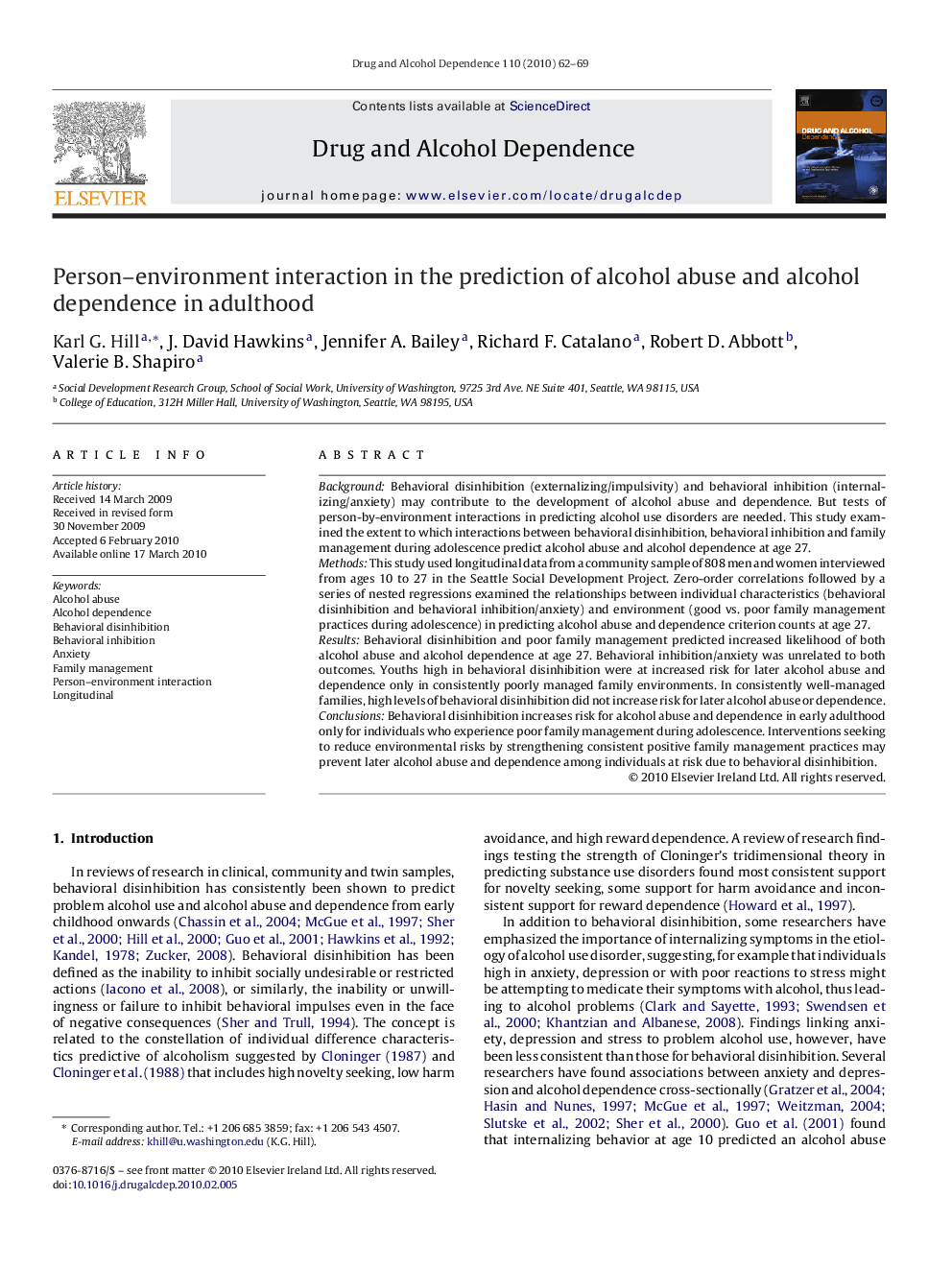| کد مقاله | کد نشریه | سال انتشار | مقاله انگلیسی | نسخه تمام متن |
|---|---|---|---|---|
| 1070684 | 1486181 | 2010 | 8 صفحه PDF | دانلود رایگان |

BackgroundBehavioral disinhibition (externalizing/impulsivity) and behavioral inhibition (internalizing/anxiety) may contribute to the development of alcohol abuse and dependence. But tests of person-by-environment interactions in predicting alcohol use disorders are needed. This study examined the extent to which interactions between behavioral disinhibition, behavioral inhibition and family management during adolescence predict alcohol abuse and alcohol dependence at age 27.MethodsThis study used longitudinal data from a community sample of 808 men and women interviewed from ages 10 to 27 in the Seattle Social Development Project. Zero-order correlations followed by a series of nested regressions examined the relationships between individual characteristics (behavioral disinhibition and behavioral inhibition/anxiety) and environment (good vs. poor family management practices during adolescence) in predicting alcohol abuse and dependence criterion counts at age 27.ResultsBehavioral disinhibition and poor family management predicted increased likelihood of both alcohol abuse and alcohol dependence at age 27. Behavioral inhibition/anxiety was unrelated to both outcomes. Youths high in behavioral disinhibition were at increased risk for later alcohol abuse and dependence only in consistently poorly managed family environments. In consistently well-managed families, high levels of behavioral disinhibition did not increase risk for later alcohol abuse or dependence.ConclusionsBehavioral disinhibition increases risk for alcohol abuse and dependence in early adulthood only for individuals who experience poor family management during adolescence. Interventions seeking to reduce environmental risks by strengthening consistent positive family management practices may prevent later alcohol abuse and dependence among individuals at risk due to behavioral disinhibition.
Journal: Drug and Alcohol Dependence - Volume 110, Issues 1–2, 1 July 2010, Pages 62–69